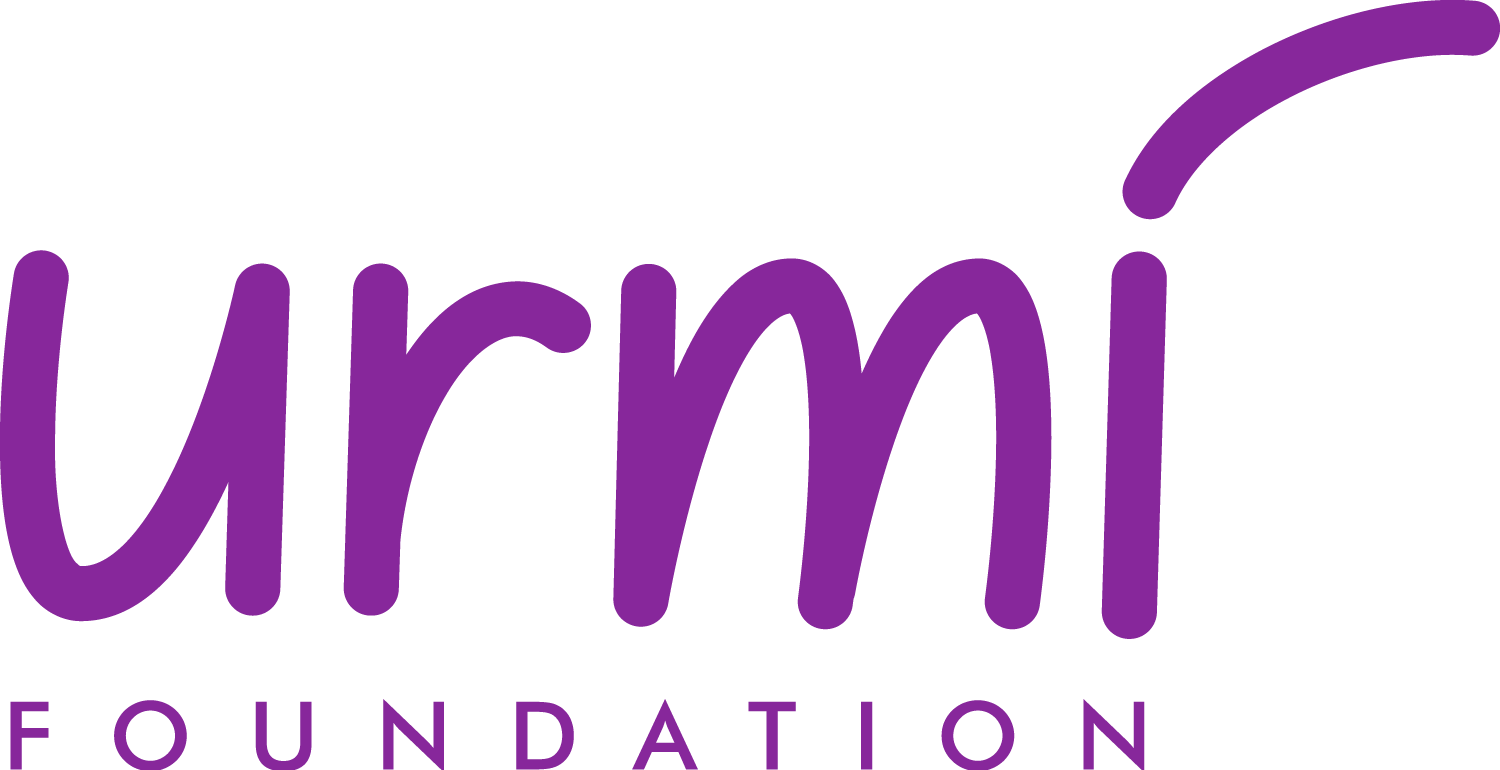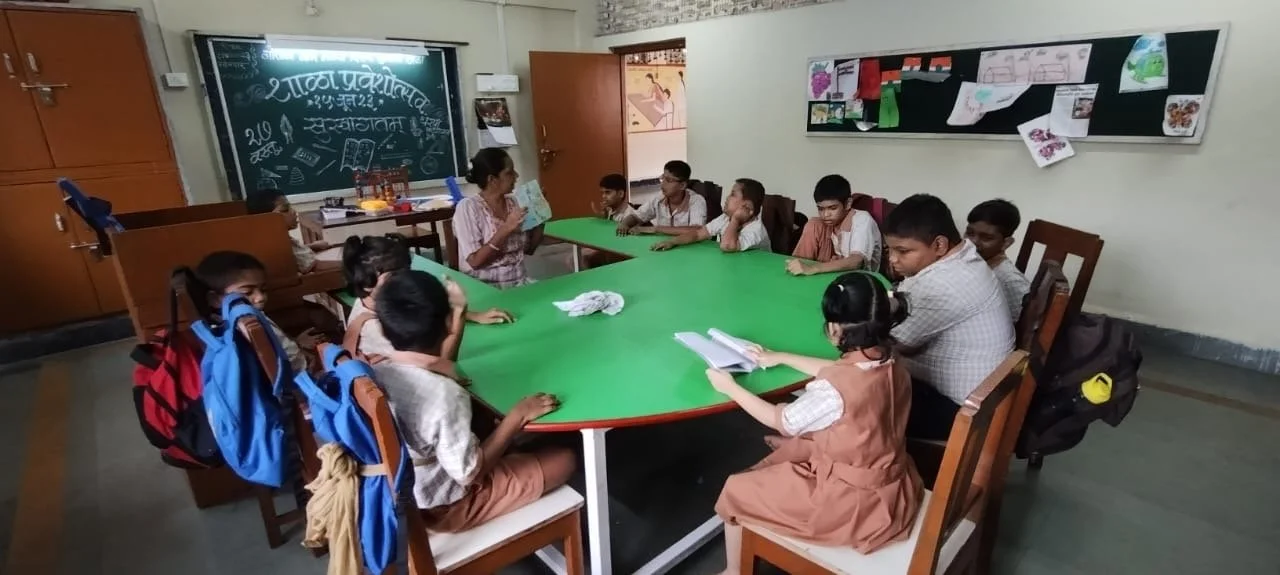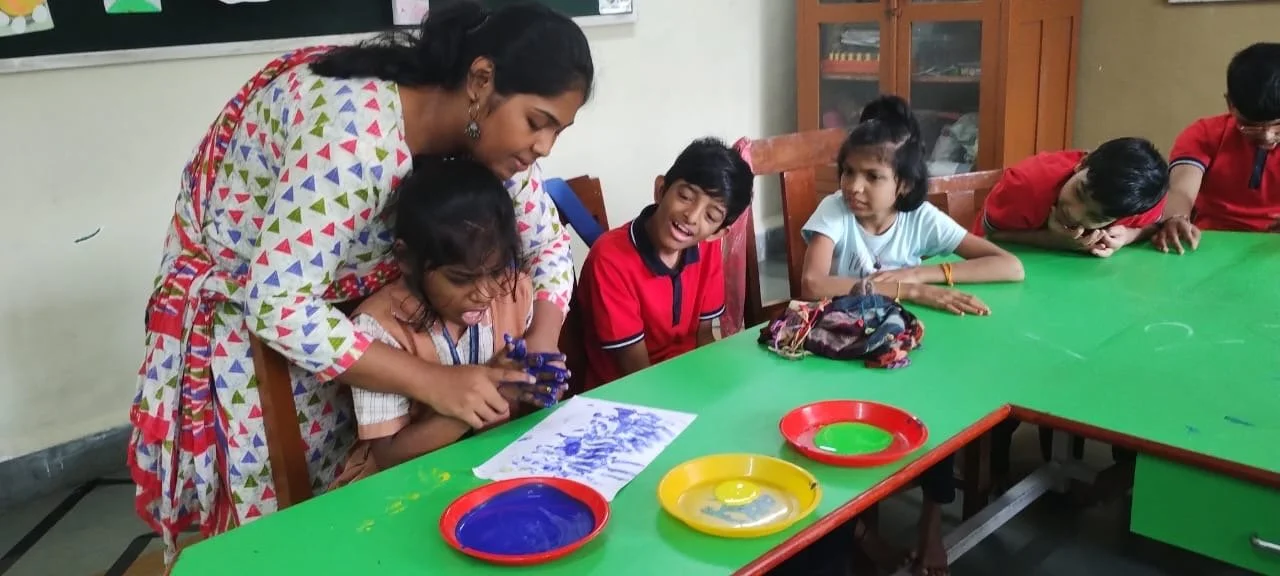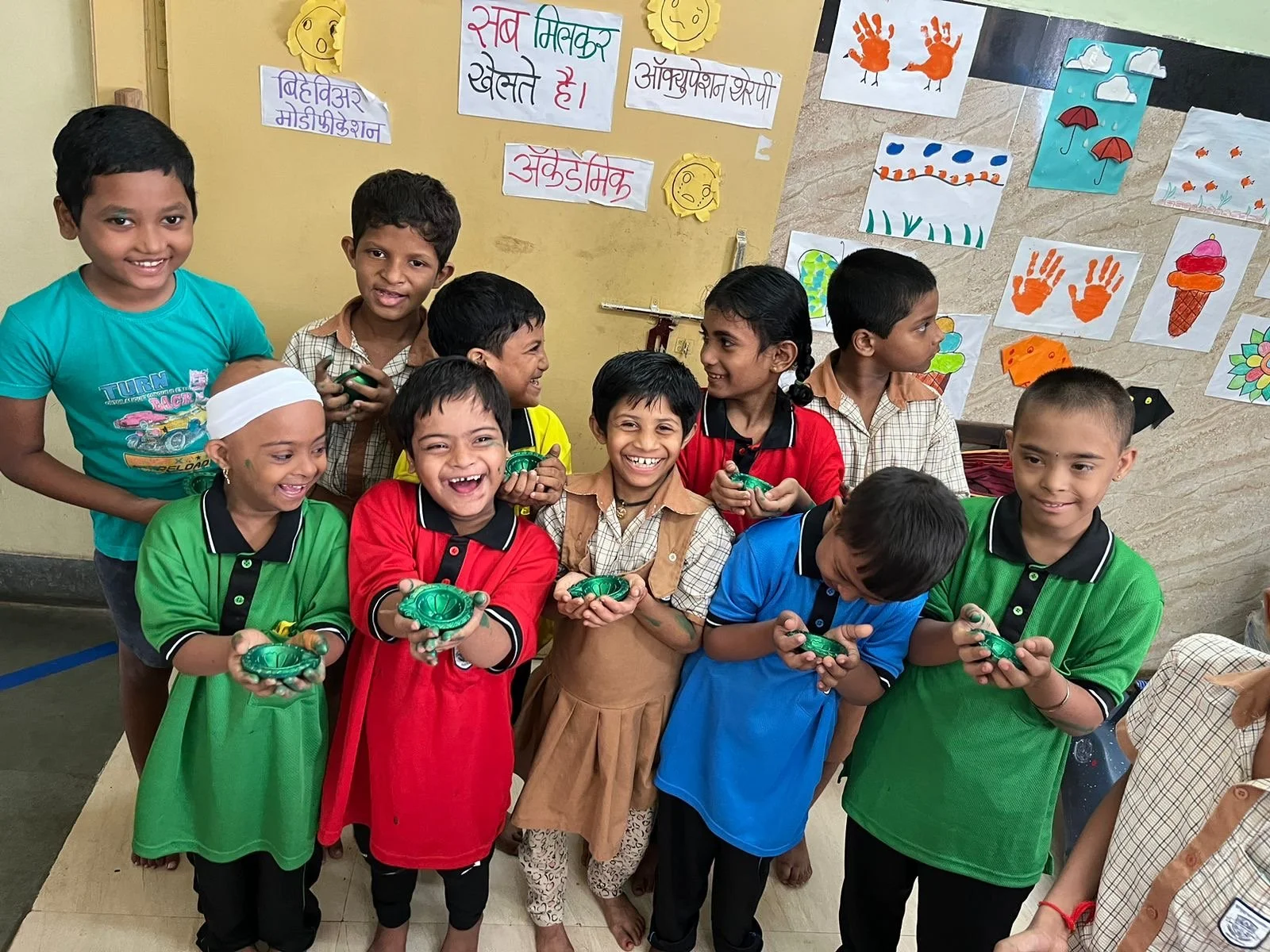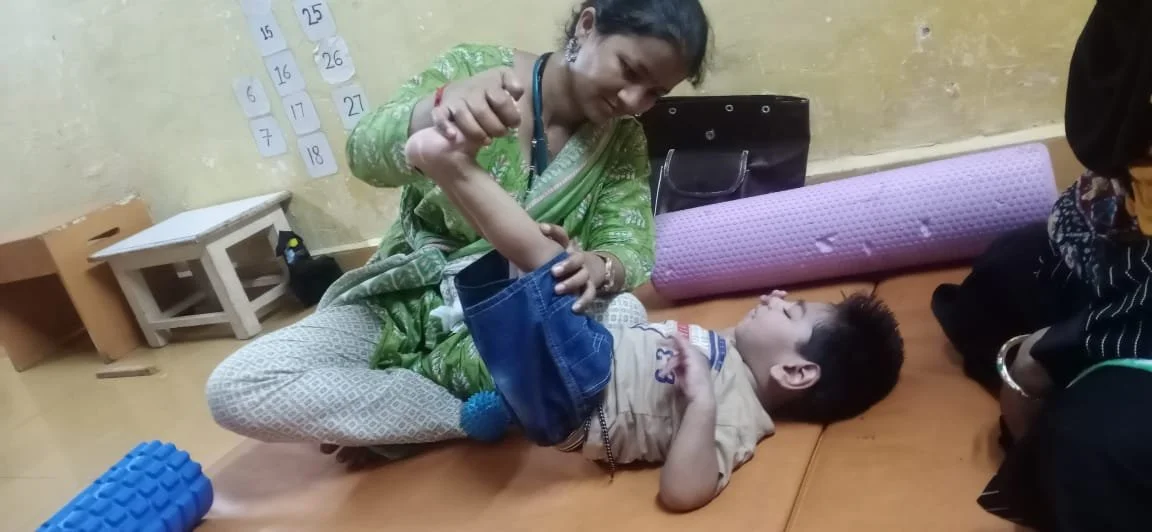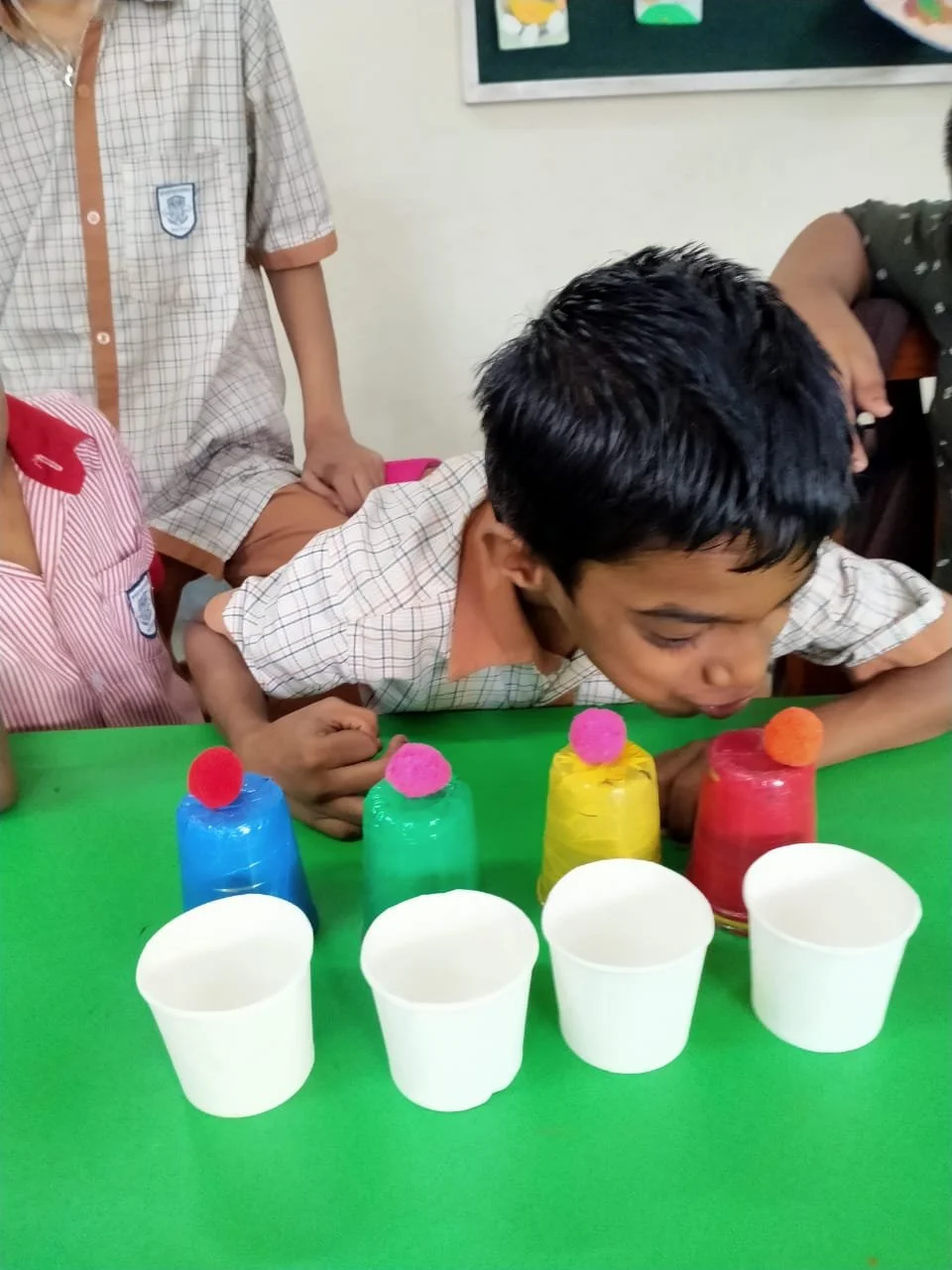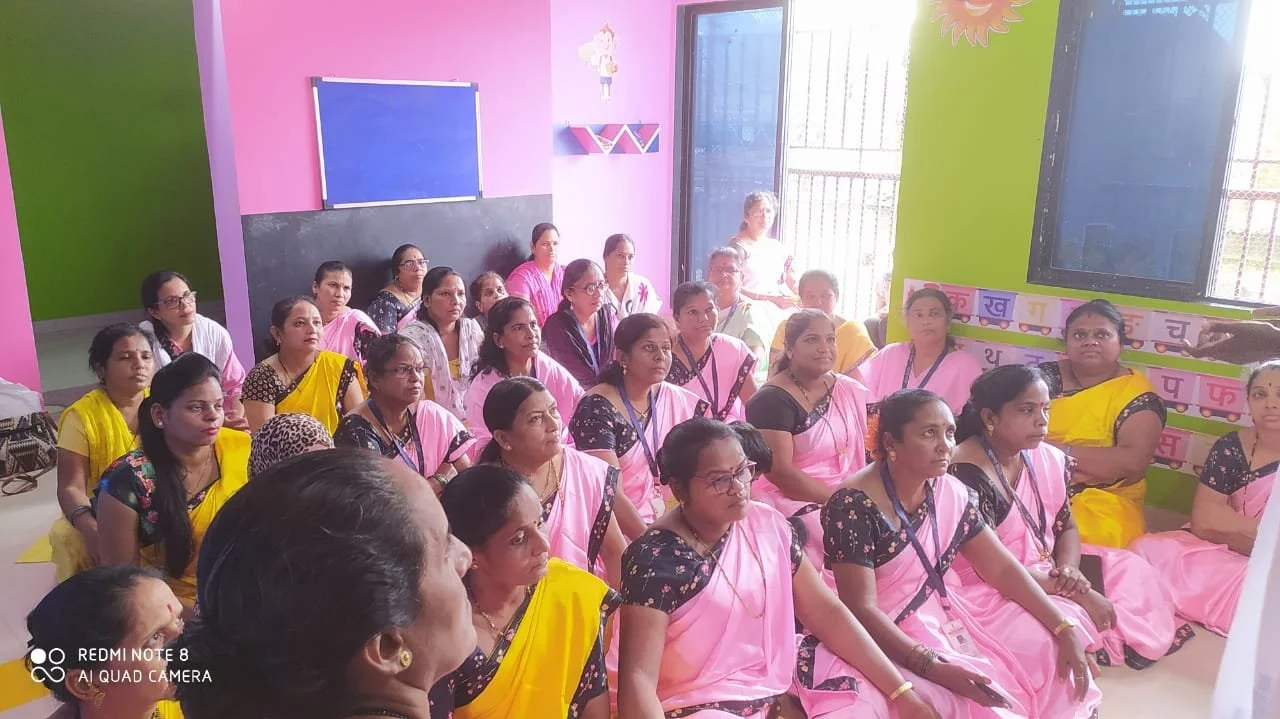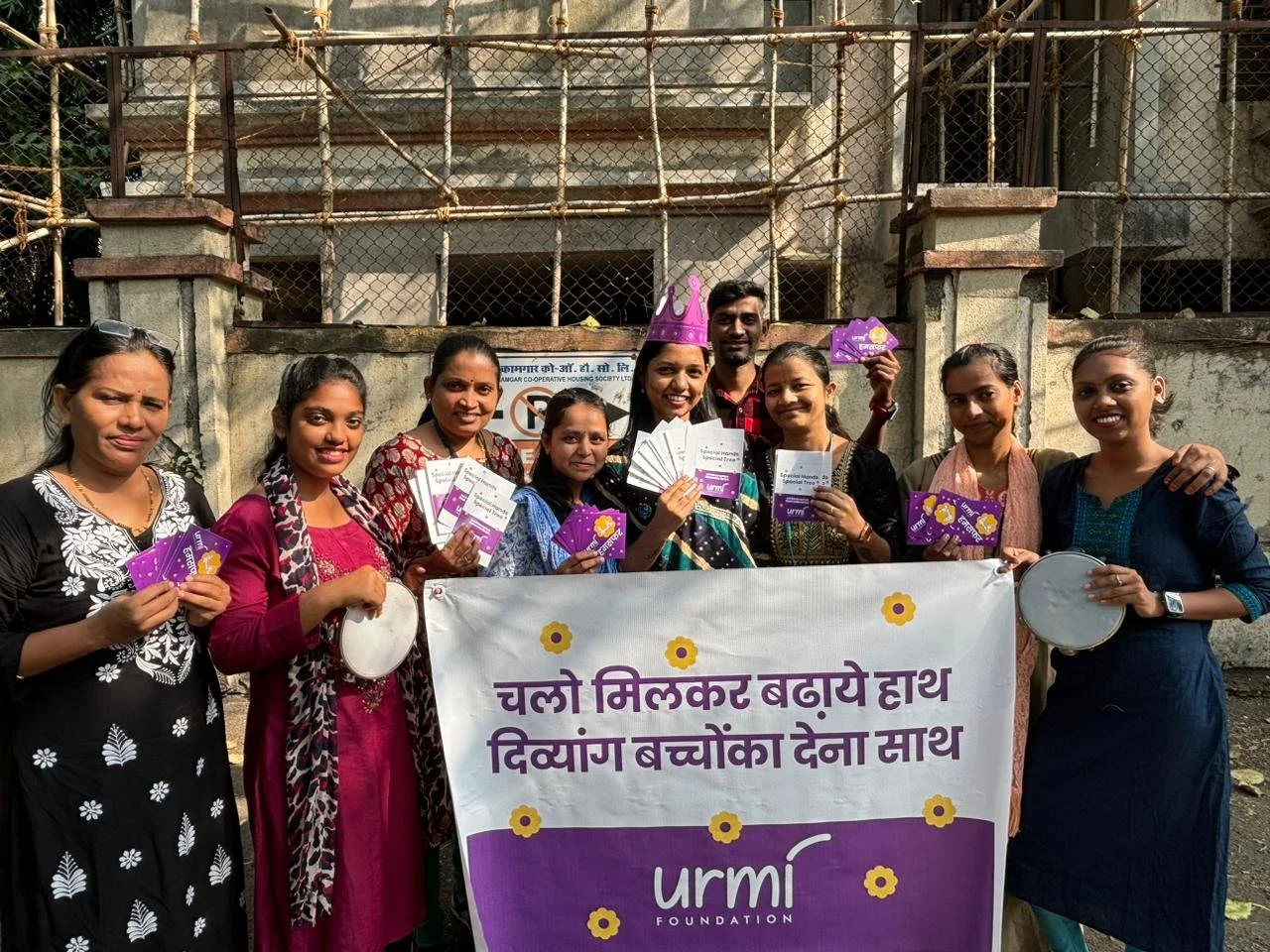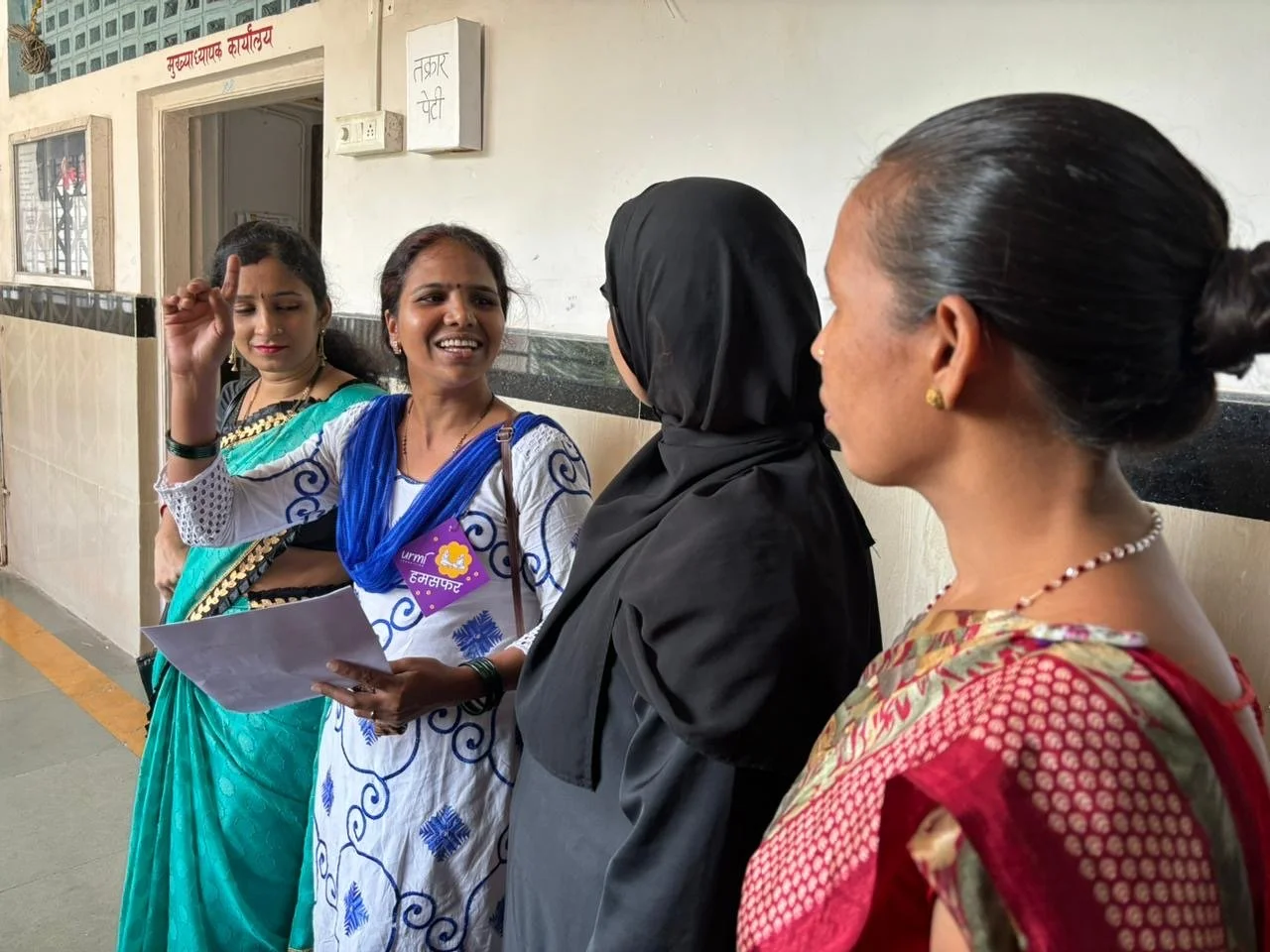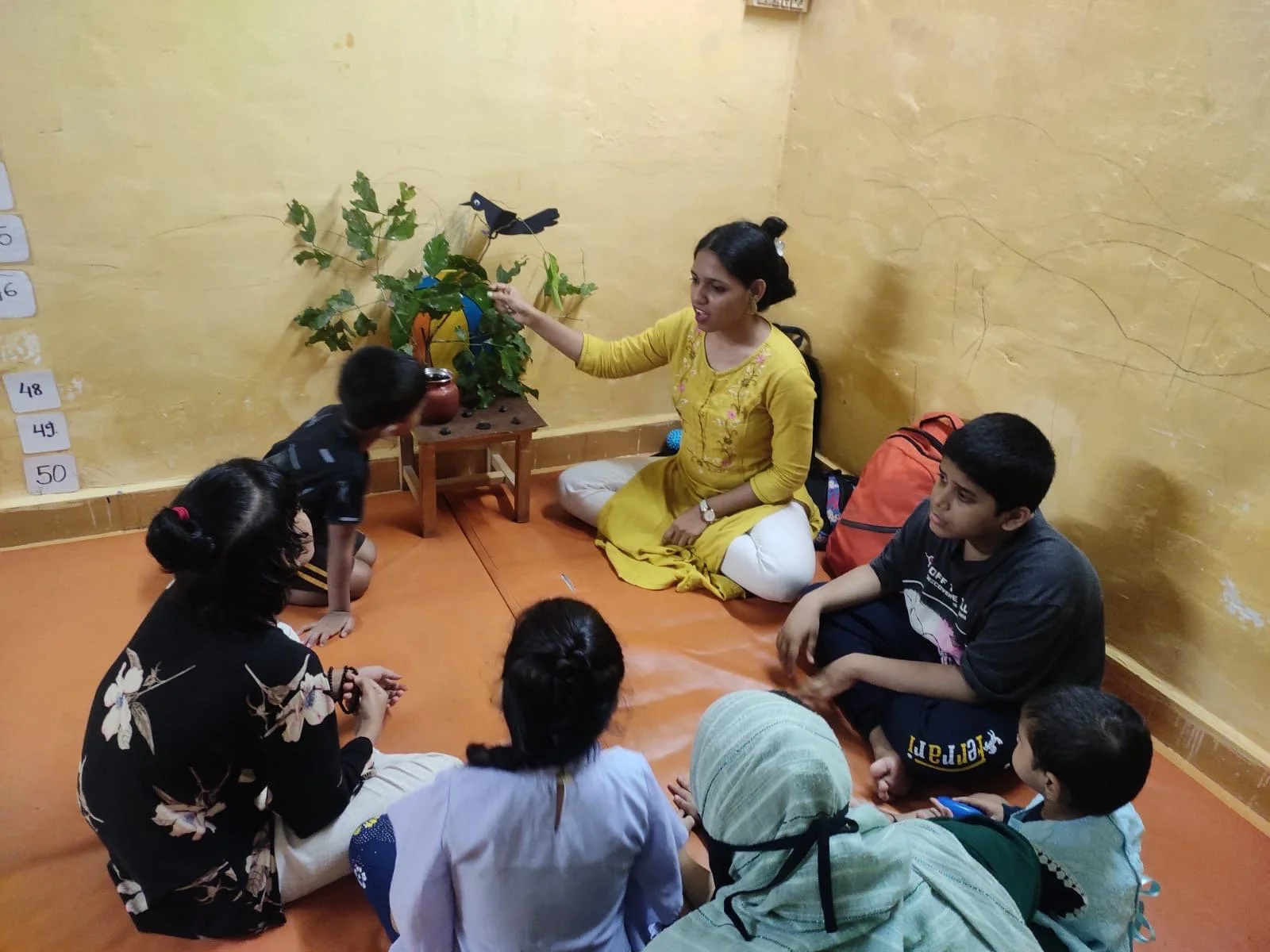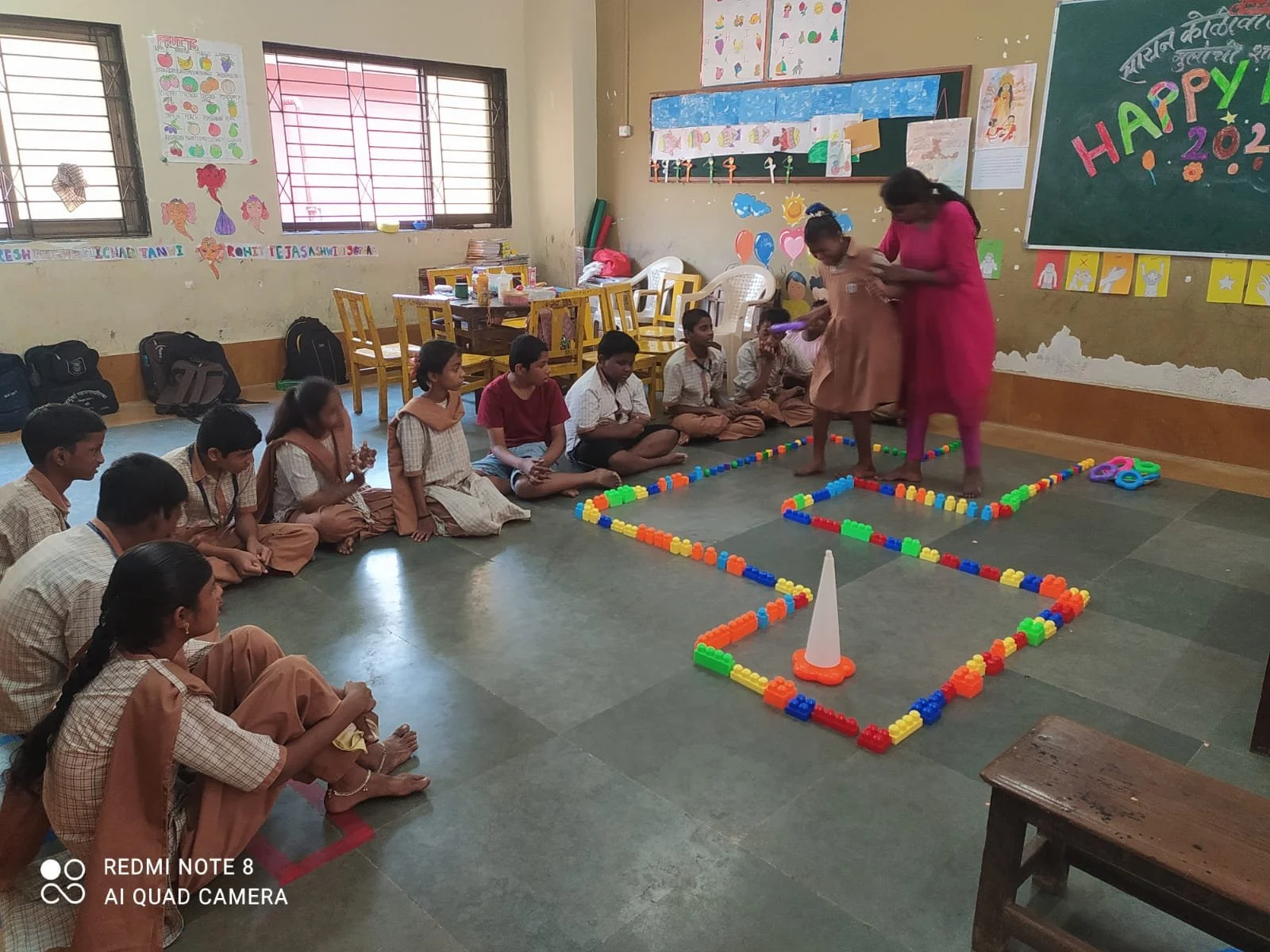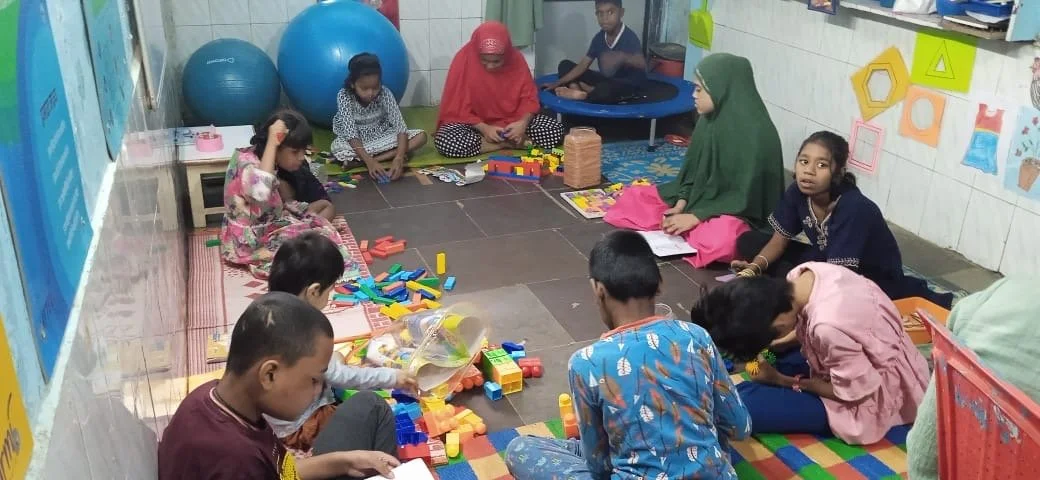Special Education
We have developed a specially customized academic curriculum that centers on functional academics, incorporating pre-vocational training. Our teaching methodology employs effective learning techniques with a local touch, enabling children from marginalized communities to relate, comprehend, and foster independent thinking skills within their environment.
To ensure the success of our approach, we have implemented a mentoring process aimed at elevating BMC teachers' skills and capabilities. This process is designed to upgrade their abilities, enabling them to deliver high-quality special education that aligns with the unique needs of the students in their care.
Education through Art
Art therapy is a targeted intervention that addresses challenges related to instruction understanding, following, poor retention, limited attention span, sensory issues, and poor eye-hand coordination. This therapeutic approach places art at its core, utilizing activities designed around painting, music, stories, and various fine arts to effectively address and overcome these challenges. The integration of artistic elements in therapy aims to create a holistic and engaging environment, fostering improvement in cognitive, emotional, and sensory domains
Special Entreprenuership
Vocational Training focuses on cultivating entrepreneurial skills within youth to attain financial independence and dignity in society. This activity addresses challenges such as limited employment opportunities, a dearth of skill development opportunities, and inadequate financial literacy. Upon reaching 18 years with Urmi, we engage the youth in skill development, actively involving their parents in the process.
Additionally, we facilitate the formation and registration of self-help groups for the parents. This collaborative approach aims to empower the youth and their families by providing them with the necessary skills and support systems to navigate the challenges of limited employment and enhance their financial literacy.
Physical Independence
Occupational Therapy
This activity is designed to enhance the development of gross motor, visual perceptual, and cognitive skills, facilitating independent daily functions such as eating, bathing, and dressing. Initially, therapies primarily relied on medical interventions, but due to the scarcity of therapists and the associated high costs, they were not widely implemented. Urmi has innovatively crafted a social model that breaks away from traditional therapy interventions.
The occupational therapy (OT) program is structured in a manner that empowers not only teachers but also parents to implement it at home. This approach ensures that the goals of physical independence can be achieved outside of a clinical setting, making the intervention more accessible and effective.
Communication and Expressions
Speech Therapy
The primary objective of this development initiative is to enhance modes of communication, including speech, expression, and comprehension of both verbal and nonverbal behavior. Speech therapy plays a pivotal role in achieving this objective, utilizing assessment tools, articulation books, and sound toys.
The therapy involves the practice of speech production mechanisms, principles, and techniques to facilitate effective communication. To bolster our efforts, we actively involve local clinics, community members, and families. This collaborative approach aims to garner support for encouraging social inclusion and bridging non-verbal communication gaps, especially for individuals with oral deformities who may face challenges in developing speech.
Anganwadi Training
The Angwandi project targets the absence of an early detection, prevention, and identification system at the grassroots level by the government, addressing issues such as a lack of disability awareness, misconceptions, and a high dropout rate among disabled children in low-income communities. Urmi takes a proactive approach by providing training to Anganwadi teachers across multiple wards.
The training includes the use of assessment tools focused on disability detection in the early stages, specifically targeting children aged 0 to 6 years. Workshops cover topics related to natal, pre-natal, and post-natal causes of disabilities, along with preventive activities. Through door-to-door surveys and outreach initiatives, we actively locate out-of-school disabled children, ensuring their enrollment in appropriate educational programs. This comprehensive approach aims to address the identified gaps in the current system and promote inclusivity at the grassroots level.
Disability Awareness - Community Outreach
Initiating awareness programs related to disabilities, early detection, and medical assessment of disabilities within underprivileged communities. The outreach efforts are geared towards early detection, prevention, and identification of disabilities, guiding communities towards fostering inclusivity.
The outreach specifically targets the lack of disability awareness, prevalent misconceptions, high dropout rates, and the presence of out-of-school disabled children in low-income communities. The primary focus is on addressing these challenges by actively enrolling special children in schools, aiming to bridge gaps and promote education and inclusion within these communities.
Capacity Building
We focus on developing functional and emotional skills in each parent to enhance their understanding of special child care aspects, including nutrition, financial literacy, and recognizing disability-related trigger symptoms. Our approach involves monthly group sessions and one-to-one psychological interventions to address identified challenges.
The intervention is predominantly conducted in a group setting, fostering collective learning and support among parents. In cases where challenges are particularly intense or individualized attention is required, the intervention is implemented on an individual basis. This comprehensive strategy aims to equip parents with the knowledge and emotional resilience needed to provide optimal care for their special children.
Social Inclusion
Behaviour Modification Therapy
Children often exhibit self-harming behaviour, engage in repetitive and violent interactions with others, and may display attention-seeking tendencies. These behaviors may arise from skill deficits or self-stimulatory patterns that can impact both learning and social inclusion. The focus is on encouraging and instilling socially acceptable behavior in special needs children, aiming to enhance social participation through meaningful interactions and improved academic learning. This approach aims to address challenging behaviors, promote positive social engagement, and foster greater overall development.
